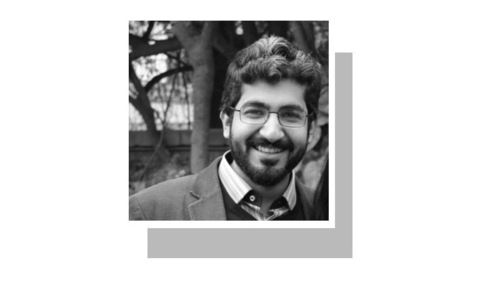PRIME MINSTER Imran Khan in his first address to the nation cited statistics from the UNDP Human Development Report to frame the government’s priorities. The recently released Statistical Update on Human Development in 189 countries provides new information and points to ways to act on those priorities.
As measured by the Human Development Index, people’s lives have improved in Pakistan, with the HDI increasing from 0.404 in 1990 to 0.562 in 2018. This is a rate higher than average for developing countries.
While Pakistan progressed from a “low human development country” in 1990 to a “medium human development country” today, the rate of progress is slower than in other countries in South Asia, eg Nepal, which has overtaken Pakistan, jumping to 149th place.
The critical dimensions measured in the HDI are health, education and income. Regarding income, Pakistan is ahead of its neighbours: its per capita Gross National Income of $5,311 is among the highest in South Asia. But on measures of education and health, Pakistan is lagging.
For instance, Pakistan’s expected years of schooling of 8.6 years is lower than India’s 12.3 years. Similarly, Pakistan’s average life expectancy at birth is 66.6 years, which is below Bangladesh’s 72.8 years.
Pakistan has the elements needed to take a leap forward.
There are many reasons for its slow progress in human development.
First, Pakistan doesn’t spend sufficient public resources on education and health. Among regional countries, Nepal has the highest public expenditure on health at 6 per cent of GDP. India’s recent low expenditure on health at 1.4pc is still higher than Pakistan’s 0.9pc.
Similarly, Nepal has on average spent more than 3.5pc of GDP on education. Pakistan’s public expenditure on education stands at 2.2pc — higher than Bangladesh’s but lower than both Nepal’s and India’s.
But it is not just the amount spent that impacts human development, it is also quality. While infrastructure investments are essential to national development, for investments to improve people’s education and health, there must be well-managed schools and hospitals with skilled, motivated staff. This is where Pakistan lags.
Another challenge that stands out is population growth. The 2017 census shows an annual growth of 2.4pc, significantly above the earlier believed rate of 1.9pc. Nepal’s population growth rate is 1.1pc, India’s 1.2pc and Bangladesh’s 1.1pc. This means that for Pakistan to increase its share of people with access to education and health services, it has to move faster than its neighbours. It also means there are unsustainable strains on scarce resources such as water when Pakistan also has to adapt to the rapid effects of climate change.
The statistics also show that rising inequality is causing slow growth in human development. There are reasons for this. One is gender. Pakistan has a Gender Inequality Index value of 0.541 and is ranked 133rd out of 160 countries. These disparities exist across all three dimensions of human development. The expected years of schooling for women are 7.8 against 9.4 for men. The percentage of women participating in the labour force is 24.9 as compared to 82.7 for men.
A second reason is clear in the National Human Development Report for Pakistan released earlier this year: the level of inequality across different districts of Pakistan. There are districts in Pakistan where human development is comparable to that in countries such as Italy and Spain. But there are 14 districts in Pakistan whose HDI value is worse than that in countries with the lowest human development.
The better-off districts in Pakistan receive a more significant share of public finances. The lagging areas, therefore, need to increase public investments and access to social services. If Pakistan chooses to target public investments to reduce inequalities, as well as regional disparities, it will leap forward in human development.
Pakistan has many of the key elements in place to take such a leap. The experience of different countries suggest that social services are provided best in a devolved governance structure, confirming the current emphasis on a secure local government system.
Despite challenges, the new government’s commitment to improving human development presents opportunities. Actions must now address the structural issues causing inequality, deprivation and the low outreach of social services.
At a time of tight budgets, many countries make cuts across the board, especially in social-sector programmes. But reforms and reprioritisation need not involve significant new capital investments — they can result in essential benefit for those who need them the most. As Dr Mahbub Ul Haq said in the first report on human development, “the real wealth of a nation is its people”. Without leveraging this wealth, inclusive and sustainable development is not possible.
The writer is UN resident coordinator in Pakistan.
Twitter: @NeilBuhne
Published in Dawn, November 8th, 2018














































